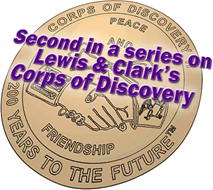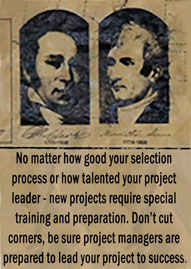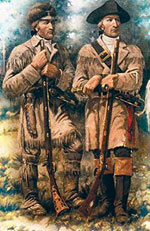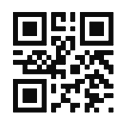
New Nation Preparation
Train to reduce pain

After choosing Captain Meriwether Lewis to head the Corps of Discovery, President Thomas Jefferson sent him to Philadelphia (the largest city in America with 81,000 residents).
May 12 till June 10, 1804 was a month of planning, equipping, and intense training from the most qualified minds in North America. Captain Lewis studied medicine under Dr Benjamin Rush, botany with Benjamin Barton, anatomy with Caspar Wistar, while Andrew Ellicott instructed Lewis in the use of the sextant and octant, tools for navigation and map making. Lewis also met with Robert Patterson to deepen his understanding of geography, latitude and longitude.

Equipping Your Project
While in Philadelphia Lewis purchased 3,500 pounds of equipment and supplies from 27 vendors. He carefully inspected each item. These supplies were to sustain the corps for 28 months, the anticipated length of the journey. Portable shelters, clothing, candles, lanterns, goods for trading with the Indians, weapons, gun powder and balls, medical supplies, emergency food, navigation instruments, and construction tools. Everything including calico ruffled shirts, strong wine, tomahawks, pigtail tobacco, and jaw harps. The supplies for the journey were carefully packed into 24 boxes or hogs head and a variety of kegs.
Lewis staffs his Corps of Discovery
First he chose an old friend, Lieutenant William Clark and asked that he be promoted to Captain. Together they advertised throughout the Ohio territory asking for volunteers. They desired only the healthiest, strongest, and most skilled men available to aid them in exploring the American West. Excited by expectations of thrilling adventure, men lined up to enlist. Lewis and Clark needed men to fulfill certain positions-hunters, blacksmiths, frontiersmen, interpreters, carpenters, and soldiers were all required. In a letter to Clark, Lewis described the necessary physical characteristics as "stout," "healthy," and "capable of bearing bodily fatigue in a pretty considerable degree."

Lewis and Clark did their job and chose men healthy and hearty enough to withstand the harsh elements of nature, hunger, and countless diseases, and injuries. In the two years, four months, and nine days of this physically and mentally challenging overland journey, there was only one fatality (thought to be a ruptured appendix).
Practical lessons we can learn from Lewis & Clark to manage projects:
- A clear vision of the purpose and importance of your project
- Securing authorization to proceed (commitment of funds and needed permits)
- Select the best qualified 'A' players to head up your project
- Specialized training to supplement the skills and knowledge of the project managers you have chosen
- Proper equipment and supplies required for the successful completion of the project
Before you leave this Turbo Charger- rate yourself:
- Which of these 5 preparation lessons are you best at?
- Which of these lessons do you need to give more attention to?
- What can you do today to leverage your strengths and close your gaps?

Larry W. Dennis, Sr.
President
Turbo Leadership Systems

